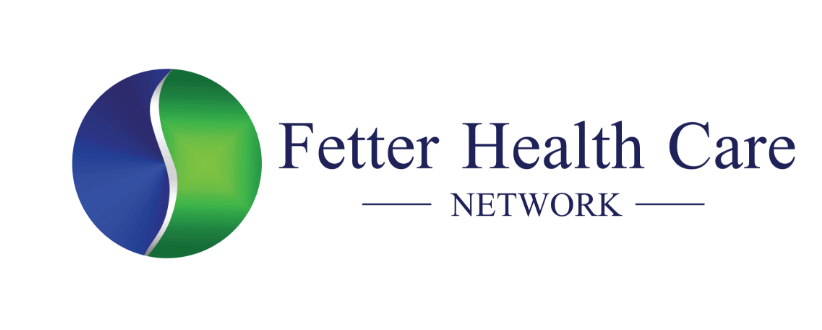News & Blogs
Stay up to date on the latest news from Fetter Health Care Network by viewing our updates below.
News & Blogs
Stay up to date on the latest news from Fetter Health Care Network by viewing our updates below.
Latest News

March 29, 2022
The History of Fetter Health Care Network
As a leading Federally Qualified Health Center (FHQC) in South Carolina, Fetter Health Care Network is committed to serving all those within our Lowcountry community, regardless of their ability to pay. Our more than 50-year legacy as a source of modern care for Charleston’s low-income population has a history that has guided our decisions and services since our very beginnings.
1967 – 1988: Fetter’s Beginnings
First founded in 1967, Fetter began as the Franklin C. Fetter Family Health Center, located in the basement of the Medical University of South Carolina (MUSC). The center was named after Dr. Franklin C. Fetter, the former Dean of MUSC and a key member of the concerned citizen group who helped this project acquire funding.
Other important citizens in this effort included Father Henry Grant (a community organizer), former S.C. Senator Herbert U. Fielding, former U.S. Senator Ernest F. Hollings and Mr. J. Arthur Brown (a community leader).
The operation was established as a small demonstration project funded by the Federal Office of Economic Opportunity to provide a full range of health care services to Charleston’s low-income community.
Over time, the project would evolve and expand along with its client base, with the facility recognized as an official Community Health Center under Public Law 9564, Section 330, of the Federal Regulation.
In 1970, Franklin C. Fetter Family Health Center would relocate to an independent location at 51 Nassau Street. The center received status as a 501(c)3 nonprofit organization in 1975.
As the need for our assistance grew, so did our reach throughout the Charleston area, with facilities opening in communities across the Lowcountry. In 1983, the Cross Health Center was founded to assist patients in the Cross community, with the Summerville Health Center opening its doors five years later.
2001 – 2010: Fetter’s Story Continues
The start of a new century was a call to action. Fetter’s commitment to its Lowcountry community would motivate our further expansion to service more counties, neighborhoods and neighbors across the state.
In 2001, Fetter Health Care Network would emphasize the health of our local children with the launch of Enterprise Pediatrics. This new pediatric location would serve community members in and around the Union Heights community.
In 2008, our mission to do more would continue. Fetter would see the grand opening of our Walterboro Health Center in Colleton County, as well as the East Coast Migrant Head Start seasonal care site two years later in 2010.
2011 – 2019: Fifty Years of Affordable Care
Promoting the health of our patients requires an ability to evolve with their needs. The decade between 2011 and 2021 would be filled with the launch of various new Fetter locations and initiatives.
In 2011, Fetter launched a new facility to service the mental health needs of our Lowcountry communities: our Charleston Dorchester Mental Health clinic. In 2012, we focused greater attention on our families of Charleston by opening the Hollywood Family Health Center. In 2014, we began offering increased oral and dental health care services through our Community Dental Center and also opened our Johns Island Family Health Center.
In 2017, our health network celebrated 50 years of care by rolling out an array of new seasonal sites (Fields Farm Camp, Willow Swamp Road Camp, McCune Branch Camp, Williams Center Camp and Packaging Shed Housing Camp) and a school-based service location at Baptist Hill Middle High School.
The following year, Fetter’s Thaddeus J. Bell M.D. Family Health Center and pharmacy opened to patients in the Summerville area. Rose D. Gibbs, MD Family Health Center, along with a new pharmacy at Elijah Wright Family Health Center, expanded our reach and increased health care access in Berkeley County. We also celebrated the launch of new mobile dental services and expanded school-based programs at Jerry Zucker School of Science.
2020 – 2021: The Fight Against COVID-19
Though the new decade did not begin as many had hoped, Fetter doubled down on our commitment to the community. As COVID-19 swept across our community, our team served as an essential resource for those in the Lowcountry. Fetter Health Care Network led the way on the front lines in the battle against this deadly virus, providing more than 20,000 COVID tests throughout four counties while operating a new Mobile Medical Unit and renovating our Enterprise Pediatrics Health Center.
In 2021, Fetter aided in our nation’s vaccine rollout, administering more than 20,000 COVID-19 vaccinations in four counties. The South Carolina Department of Health and Environmental Conservation would recognize Fetter Health Care Network as one of the first “Community Heroes in South Carolina” for these efforts.
Fetter for the Future
Our history is still being written today! As Fetter’s care continues to expand across Lowcountry, we still uphold our goal of providing patients with quality, affordable health care. Contact us today to schedule your next appointment, or visit us online to explore our complete list of services.

March 22, 2022
Creating Healthy Habits for a More Nutritious Lifestyle
Triple-check that nutrition label and break out your gym clothes because National Nutrition Month® is here. Each March, people across the country come together to commit to healthier living. Whether it be substituting a fast-food meal for a fresh, green salad or sneaking in an evening stroll, there are countless healthy habits you can develop to live a more nutritional lifestyle.
Eat slower and chew better
When you come in contact with a tasty dish, eating quickly may just come naturally, but it can have a negative impact on your health. Lowcountry food can be hard to resist, but slowing down during meals can have benefits you might not believe.
When we eat, there are hormones that communicate things like how much we need to eat and how full we are. These hormones can take an average of 20 minutes before their signals reach our brain. By slowing down and chewing better, our brain has time to receive these signals, giving us a chance to avoid overeating and helping us more easily lose or manage weight.
Nothing beats a home-cooked meal
You can never go wrong with a home-cooked meal. Unlike eating out at a restaurant, cooking meals at home gives you full control over what goes into your body. You will know each and every ingredient added to your dish, which can do wonders for those keeping an eye on sodium intake and more.
Cooking at home is also more cost-effective than fast food or take-out options and can also provide you with leftovers, ensuring another healthy meal to come.
If you are interested in at-home cooking but unsure how ingredients may help your specific diet, you may be interested in learning about Fetter and Lowcountry Street Grocery’s Grocery Rx program, which teaches patients with hypertension, diabetes, and other health conditions how to select, shop and prepare healthy meals.
Never grocery shop without a list
It’s a generally accepted fact of life that things go smoother when you have a plan. The same can be said for grocery shopping. Shopping with a grocery list can help keep your body and wallet at their happiest.
If you’ve ever shopped without a grocery list, you have likely found your cart filled with two things: 1. items you didn’t intend to buy and 2. unhealthy treats. Creating a list before you leave for the store can help you avoid both of these problems.
Planning meals can help cut back on impulse buys and allow you to stay focused on finding healthier items.
Tips for healthier shopping:
- Avoid increased salt intake by choosing products that say “low sodium.” Do so by avoiding processed or prepackaged foods like frozen pizza and some deli meats.
- Choose whole-grain bread over traditional white bread. Whole grains can help reduce the risk of diseases like type 2 diabetes and heart disease. They’re also an excellent source of fiber and B vitamins.
- Avoid foods high in trans fats. A high intake of foods with trans fats can increase the risk of heart disease. Instead, choose healthy fat foods like olive oil, nuts, avocados and more.
Add more protein to your diet
Protein is considered by many to be the most filling of all the macronutrients due to its high ability to affect your hunger hormones. Studies have shown that proteins may be more effective in doing so than high-carb meals for people living with obesity. Because of its filling property, protein can help you feel fueled for longer, which can help curve cravings and limit snacking sessions.
A protein-rich diet can also help maintain muscle mass for the young and help reduce muscle loss, which is a common effect of aging.
Excellent sources of protein include:
- Eggs
- Almonds
- Yogurt
- Chicken Breast
- Lean Beef
Tips for forming (and keeping) a healthy habit
Developing a healthy habit can be easy, but maintaining it can be tricky. Try following these tips when forming your healthy nutrition practices to help you stay on track!
- Identify your bad habits. In order to create change, you need to understand what needs changing. Take a moment to determine what patterns may be unhealthy and develop a plan to improve them.
- Build a support system. It is easier to get stuck in our patterns. Having friends and family to support you in adopting new habits can help to keep you accountable. Have a loved one tag along for your grocery trips or join you in cooking a healthy meal once or twice a week.
- Track your progress. Seeing results is a great motivator when trying to change your lifestyle. Keep a log of weight loss that’s stemmed from healthy meals. Create a recipe book of all the dishes you’ve cooked on your new diet. Witnessing the impact of your new way of life can be just what you need to maintain it.
If you’re looking to make the switch to a healthier lifestyle, Fetter Health Care Network is here to help! Contact us today to schedule an appointment at one of our Lowcountry facilities, or visit our website to learn more about our available services.

March 15, 2022
Fetter Health Care Network expands school-based health care services to R.B. Stall High School
Fetter Health Care Network (Fetter) has expanded its school-based health care services to the students of R.B. Stall High School in North Charleston, SC. Fetter, a Lowcountry-based Federally Qualified Health Center (FQHC), has been partnering with Charleston County School District (CCSD) for four years to provide a range of health care services to students, staff and families through Lowcountry schools.
Fetter’s partnership with R.B. Stall High School began on March 15, 2022, and focuses on providing a range of health care and dental services to the school’s student population. Fetter’s team is present and serving students on-site at the school on Tuesdays from 9:30 a.m. to 2 p.m. With this new addition, Fetter will now have a rotating care schedule at six schools throughout the Lowcountry.
“We are thankful and excited for the opportunity to expand our school-based services to the students at R.B. Stall High School,” said Aretha Powers, DHA, CEO of Fetter. “As a community health center, one of our primary focuses is making quality health care services accessible and affordable for our friends and neighbors in the Lowcountry. We look forward to growing our partnership with R.B. Stall High School and helping these students flourish through access to a wide range of health care services.”
Services offered to R.B. Stall High School students include primary care, dental services, health screenings, immunizations, sports physicals, case management, specialist referrals and behavioral health services. Families interested in learning more or registering their student for Fetter’s health care services can visit FetterHealthCare.org/school for more details.
In addition to R.B. Stall High School, Fetter also provides a range of health care services on a rotating schedule at its other partnering schools: Baptist Hill Middle High School, Deer Park Middle School, Jerry Zucker Middle School of Science, Mary Ford Early Learning & Family Center and Morningside Middle School.
For more information about Fetter, its health care services and its locations throughout Berkeley, Charleston, Colleton and Dorchester Counties, visit FetterHealthCare.org.
